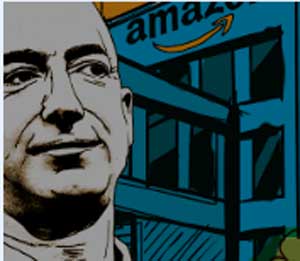| |
|
| |
|
 |
Supply
Chain by the Numbers |
| |
|
| |
- July 11, 2024
|
| |
|
| |
|
| |
|
| |
Amazon Celebrates Birthday; Air Cargo Rates Soaring; Making Bikes in the US Again; Lthium Price Collapse |
| |
| |
| tG Q1 |
| h |
|

|
| That is how old Amazon.com turned last week, filing to incorporate on July 5, 1994, in the state of Washington, under the name of Cadabra. In 1995, its web site opened, selling only books on-line. In 1997, Amazon went public. The next year, 1998, Amazon said it would sell a larger variety of goods than just books, including clothing and computers. In 2015, the company launched its Prime service, which for an annual fee gave customers free two-day shipping, in a move that would ultimately transform US logistics, though it was actually slow to take off. Then in 2021, founder Jeff Bezos stepped down as CEO, though he has remained as chairman of the board. |
|
|
|
| |
| |
|
|
|
That is about the current price for a metric ton of lithium, an essential material of course for making batteries that power computers, electric cars and more. That is way down from a whopping $43,000 or so one year ago and $85,000 in 2022. It is also the lowest level since Benchmark Mineral Intelligence began publishing weekly prices in early 2023. What’s going on? The slowdown in sales of electric cars, which has significantly reduced demand for lithium, with many traders expecting the price to head still lower, as miners have largely kept production running steady even at the low price. Longer term, many experts expect the price to soar again eventual ecar demand growth. |
|
|
|
| |
| |
97.8% |
|
| That unbelievably is the share of electric and traditional manual bicycles sold in the US that came from other countries. The US bike market has simply collapsed for domestic producers, whereas a few decades ago the market was dominated by firms producing in the US, such as Schwinn, Murray, Huffman and AMF. All this in the news this week because of new legislation on the matter introduced by Congressman Earl Blumenauer of Oregon. His Domestic Bicycle Production Act aims to incentivize American companies to make bicycles again through a mix of tariff suspensions, tax credits, and loans. The key provision: a 10-year tariff suspension on the importation of components needed to build a bike. That will lower costs for domestic producers. Will it get passed? Will it have an impact if it does? The odds on both questions are likely long. |
| |
| |
| |
| |
| |
|
|
|
|
| |
 |
 |
| |
 |
![]() |
 |
|
| |
 |
Feedback |
|
|
|
![]()
|
No Feedback on this article yet.
|
|
![]() |
|
|
|
![]() |
 |
![]() |
 |
|
| |